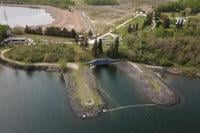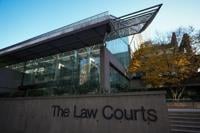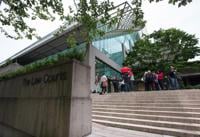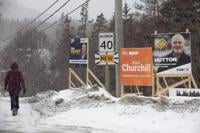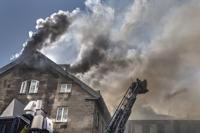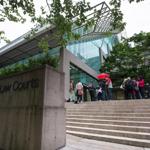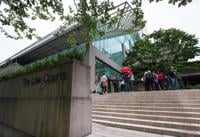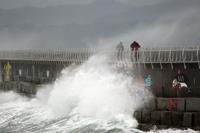WINNIPEG - An Anishinaabe community in northwestern Ontario is suing the federal government and the City of Winnipeg, claiming it hasn't been compensated for a diversion to supply Manitoba's capitalwith clean water a century ago that resulted in it being cut off from road access.
Shoal Lake 40 First Nation, which sits on the Ontario-Manitoba boundary, filed a lawsuit Tuesday against the two levels of government in Ontario's Kenora Superior Court of Justice.
The suit alleges the federal government and the City of Winnipeg have not properly compensated the First Nation for "injurious affection or interference with its reserve lands" since a diversion system was created in 1915 for the city to use water from Shoal Lake.
"They forced us into this location, removed us from our traditional lands just to access clean drinking water," Shoal Lake 40 First Nation Chief Kevin Redsky said in a phone interview.
"Canada allowed that to happen. They allowed our people to be displaced."
The City of Winnipeg said in an email it has not been served with the suit, but did not provide a further statement. The federal government did not provide an immediate response.
Winnipeg identified Shoal Lake as a potential source of water for its residents and Canada eventually approved an expropriation order to move portions of the First Nation to enable the construction of the diversion. Part of this included a 150-kilometre aqueduct to transfer water to Winnipeg from Shoal Lake.
Construction of the diversion isolated Shoal Lake 40 on a man-made island, leaving it without road access to the mainland.
The lawsuit claims the diversion disrupted and damaged areas around the community that members relied on for cultural and traditional practices, including hunting, fishing, trapping and harvesting.
"This in turn negatively affects Shoal Lake 40's ability to maintain its connection and relationship with the lands and waters in and around Shoal Lake, including members' ability to pass on traditions, teachings, practices and cultural knowledge to younger generations," the document says.
The First Nation alleges the isolation has had long-term cultural, economic and social effects on community members and its land and properties.
Until a few years ago, the community could only be reached by ice road in the winter or by boat in the summer. The lawsuit says families were forced to relocate to access basic health services and educational and professional opportunities.
Residents who chose to stay risked their lives trying to cross on the ice road, says the lawsuit.
"Several Shoal Lake 40 members drowned while crossing the ice ãÎ many others experienced life-threatening and traumatic experiences falling through the ice while trying to travel to and from the reserve," says the document.
It also says costs associated with transporting building materials to the reserve soared and the community struggled to maintain critical infrastructure, including roads and schools.
Shoal Lake 40 was placed on a drinking water advisory in 1997, because its water treatment system didn't meet requirements to provide safe drinking water.
In 2019,Freedom Road was constructed, connecting the community to the Trans-Canada Highway. Two years later, the First Nation was able to lift the water advisory when they built a new water treatment facility.
The lawsuit says the community wants Canada to acknowledge that it breached its fiduciary duties by failing to protect the community's interests and Winnipeg to recognize that it failed to compensate Shoal Lake 40.
The First Nation also wants an unspecified amount of compensation.
"We want equality. We struggled way too many years. What price tag is associated to those struggles? It's not up to me to determine," said Redsky.
He added that after years of inequalities, community members expressed interest in pursuing the legal action.
"Let's acknowledge the wrongdoings and the struggles created as a result of this, and lets truly reconcile and move forward," he said.
This report by üСÜꪤüýò¿Øéóæòêü was first published July 26, 2023.


